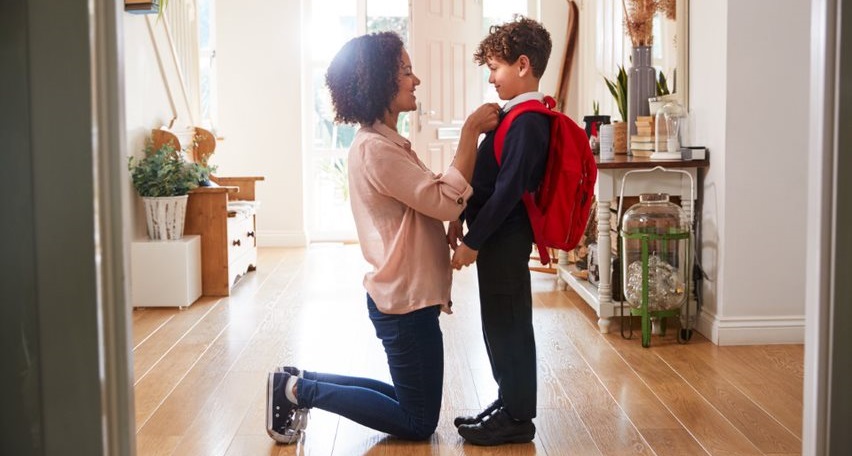Advice For Schools, Safeguarding
Back to School: How Can We Best Support Children?
Journeys forward are always shaped by where you’ve been.
The last three months have created a scenario that no one could have ever imagined.
For many schools, managing the haemorrhaging of staff and pupils as the crisis took hold created an untenable situation, and the closure to all but vulnerable children and those of key workers signalled a form of schooling none of us could have predicted.
Online learning was embraced by many but for some children this was never going to be feasible.
Inequalities were exacerbated and an attainment gulf began to emerge.
We also know that for some children being isolated at home, away from the security and routine of school could be a potentially harmful situation.
All our training on how to identify and support the most vulnerable children had not prepared us for this, and we had to redesign mechanisms to not lose sight of these pupils over lockdown.
However, what is becoming clear now is that the re-opening of schools and the resuming of some kind of teaching poses possibly an even greater set of practical issues and problems for school leaders.
The debate that has raged since the Prime Minister announced the “June 1st return” has left leaders, school staff and parents unsure on what they must do. National blanket decisions did not recognise that every local authority area, and every school is different.
Emotional Health
In talking to school leaders we see that the biggest concern is the impact that being out of formal education has had on mental and emotional health of children and young people.
All will have experienced an unimaginable change to their lifestyles:
- Not seeing friends.
- Not being able to be out and part of their communities.
- The loss of sport and hobbies.
Some will have lost grandparents, parents and siblings potentially without the chance to say goodbye.
Others will have lived in households where parents are dealing with the reduction or loss of income or employment, and the possible breakdown of family relationships.
All of this whilst not being able to access their normal support network, at school.
So bringing these pupils back into school requires sensitivity, time for reflection and strategies to deal with anxiety and manage the behaviours that can stem from extreme emotions and feelings.
How can we support children effectively on their return to school?
1. Create an Emotionally Safe Environment
Teachers will need a repertoire of materials and resources to use both with whole classes and in 1:1 situations that enable children to understand and manage their emotions and behaviours.
Children will need to understand they are not alone and to develop a range of strategies and approaches to manage the situations they are facing.
- Emotional Health Resources and Courses For Schools – Services For Education
- Supporting Mental Health – Protective Behaviours Consortium
- Mental Health Resources – Young Minds
Our Emotional Health Lead has also put together these two free podcasts together for you:
You can access the video courses that go with these podcasts via our digital page.
2. Some Children Will Need Extra Support
Pupils struggling with dealing with significant change will need specific support.
School staff can develop their understanding and awareness of dealing with loss and with anxiety through online training but some children will need a greater level of support, and specialist external staff will play a vital role working with more complex cases.
Educational Psychologists, Pupil Mentors and Family Support can create an interventions team to work with the child and family to provide a systemic approach to tackling social, emotional and behavioural issues.
At Services For Education, we do provide Family Support Workers and Pupil Mentors for schools. You can find out more about them here.
Or feel free to read this interesting blog to find out exactly what they do: A Day in the Life of a Learning Mentor.
3. Utilise PSHE Lessons
Whilst there is a need to begin to bridge the gap for English and maths attainment, other subjects such as music and the arts that support the cohesion of the group, can make a significant positive impact on emotional and mental health.
High quality PSHE lessons provide excellent opportunities for pupils to discuss, explore and process what has happened and to consider how to deal with the changes in their lives going forward.
Schools need to ensure there is dedicated time in the week for PSHE and that staff feel equipped to run these lessons and create a safe climate for young people to explore, question and support one another.
Groundrules, distancing/third-party techniques, question boxes, small group discussion can all contribute to an environment where truly effective PSHE happens that impacts upon knowledge, attitudes, skills and behaviours.
Other than our own PSHE and RSE courses and resources, the PSHE Association also provide a range of online PSHE resources, if you need some support with this area.
Summary
Schools have done an amazing job in navigating the first phase of this crisis.
We know that every member of every school community will continue to use all their creativity, ingenuity and strength to ensure the next phase meets the array of needs of children and young people, and provide the best possible pastoral and academic experience.
We are proud to support school leaders and teachers, and will be here to work alongside you and do whatever we can in the next stage of this journey.
If you would like any information on any of the topics covered above, we are here to help. Please email us at hello@servicesforeducation.co.uk
About the Author
Andrew Cooper – Head of School Support, Services For Education
Andrew is the Head of the School Support Service. He has extensive experience in PSHE from his early career as a secondary school teacher, through working as Health Promotion Specialist in HIV and Substance Use, to his role as a local authority Health Education Service adviser, where he led on a number of areas including Relationships and Sex Education, and Safeguarding. He was the Healthy School Co-ordinator for Birmingham for 10 years, and also Regional PSHE Adviser for the West Midlands.
In a step outside of the world of children and young peoples’ physical and emotional health, he spent four years managing an initial teacher training provision. He became Head of the School Support Service for SFE in 2014 and now leads a team of advisers delivering support, consultancy and training to schools across the UK. During this time he has led on the development of the SFE digital offer, provision of pupil and family services, and the growth of the face to face training offer. He is currently a Trustee for the PSHE Association.


 Lucie Welch – Adviser, Services For Education
Lucie Welch – Adviser, Services For Education Jo Perrin - Interim School Support Lead, Adviser, Services For Education
Jo Perrin - Interim School Support Lead, Adviser, Services For Education


